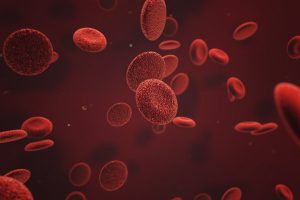
Nitric oxide’s role in the respiratory cycle can help prevent heart disease and blood disorders. Oxygen is the most important gas our bodies require to function and for us to live. We breathe it in and oxygen is carried throughout the body through our cells so that we can keep breathing, keep our heart beating and carry on normally.
Up until now, when it came to the respiratory cycle it was believed that only two gases were involved which helped transfer good blood cells and remove the bad ones. But new research has uncovered a third gas, and although you may not have heard of it, it’s vital for the respiratory cycle to occur.
How the respiratory cycle works
Before I can explain to you the important gas our blood cells need, it’s important to note how the respiratory cycle works. Blood transfers two gases throughout the body and the lungs – oxygen and carbon dioxide.
When we inhale fresh oxygen, red blood cells go to work picking up this oxygen and carrying it to cells which lie in the tissue of the rest of the body. In turn, once the oxygen reaches its destination, the same cells pick up carbon dioxide to be carried out as waste. This is released through the lungs when we exhale.
Nitric oxide important for oxygen delivery to cells and tissues
At this point, we have a basic understanding of how oxygen moves through our body with the help of cells, but new research suggests that this respiratory cycle cannot be complete without nitric oxide.
Published in the Proceedings of the National Academy of Sciences, the study shows that even though the cells pick up oxygen, they also need to pick up nitric oxide as well. This is necessary because it’s nitric oxide which enables blood vessels to widen, allowing the supply of oxygen to enter the tissue.
Lead professor Jonathan Stamler of the study suggested that blood flow, not oxygen, is sometimes much more important to reach tissues. Further conclusions were that without nitric oxide, oxygen simply could not get to the cells and tissues it needs to reach. Without nitric oxide, the respiratory cycle could not be complete – having a proper balance of nitric oxide in the body is highly important for normal functioning.
In the study, conducted on mice, researchers found that the mice could not oxygenate their muscle tissue without the presence of nitric oxide. The oxygen was carried throughout their bodies, but without nitric oxide the oxygen never got “unloaded” to the tissue.
Generally speaking, when mice have lower oxygen levels, a spike occurs in their blood flow. Among the mice used in the study, this did not occur. In fact, lower oxygen without nitric oxide resulted in heart attacks and heart failure.
Increase nitric oxide levels to improve health
The new research clearly stresses the importance of nitric oxide as it assists in your cells’ ability to release oxygen into the tissue. Increasing oxygen intake simply is not enough if nitric oxide is lacking. The oxygen will not be dropped off for use.
But the benefits of nitric oxide don’t stop there. Nitric oxide has also been noted to help the cellular functions that improve sleep, fight off illness and strengthen the immune system, improve the senses like taste and smell, increase speed and endurance, boost memory and regulate blood pressure. As you can see, nitric oxide is absolutely vital for the body. It’s good to note there are things you can do to increase your nitric oxide.
Boosting nitric oxide levels naturally
Natural ways to boost nitric oxide include diet and exercise. The oxygen your muscles require during exercise allows your arteries to release nitric oxide. Foods like nuts, fruits and meat can also help the production of nitric oxide as they contain l-arginine, a key amino acid.
When you combine healthy eating along with regular exercise, you can help your body produce nitric oxide and increase the amount of oxygen your cells receive to perform their function properly.
So if you’ve been feeling sluggish, not sleeping well and have high blood pressure, boosting your nitric oxide may be the secret to improving your health overall. Remember, an increase in blood flow as well as oxygen can only result in better health. It’s definitely a win-win.